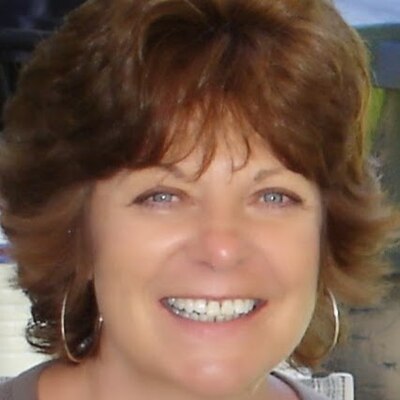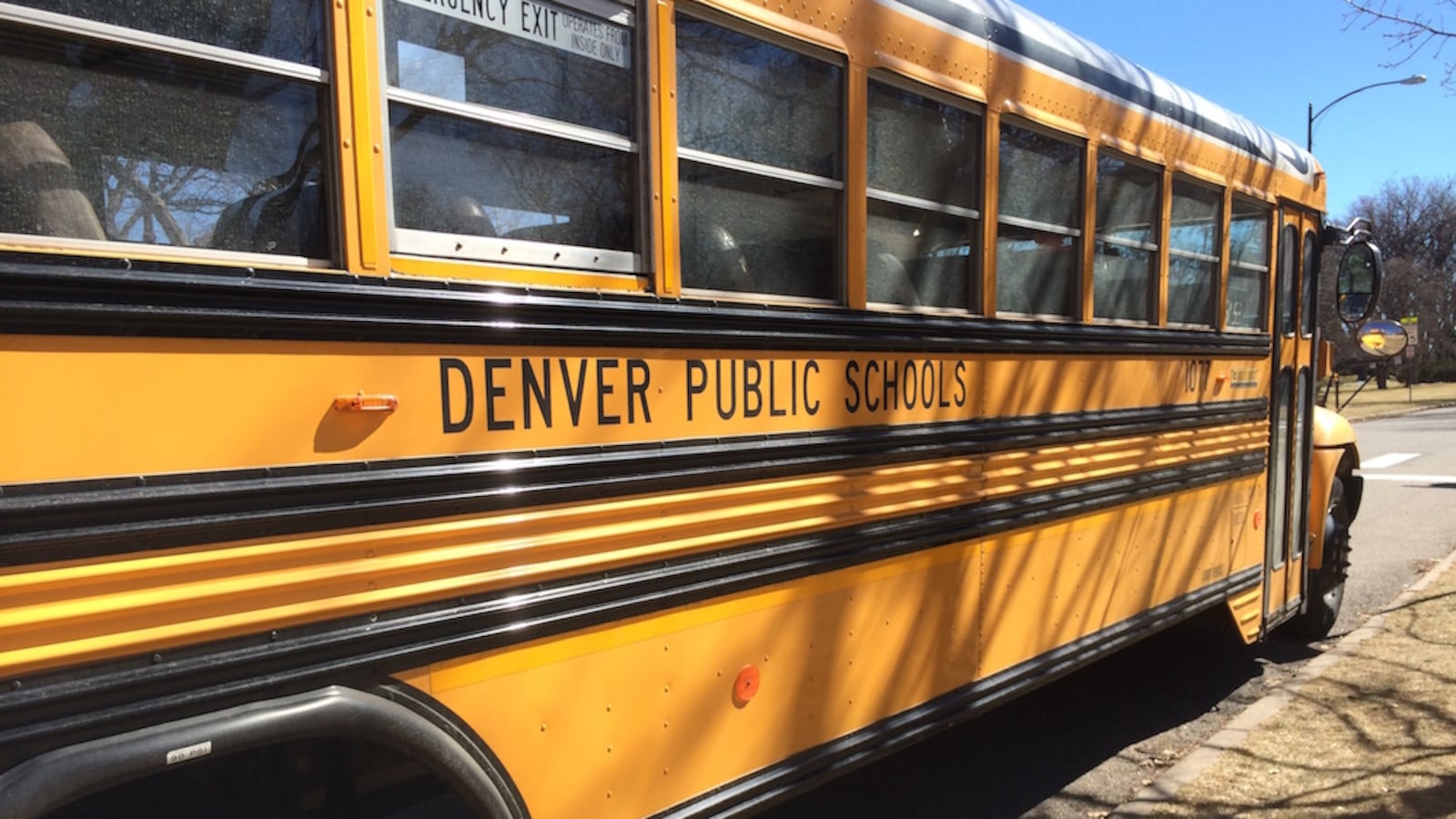In southeast Denver, this fall’s school board election pits incumbent Anne Rowe against Kristi Butkovich, the executive director of the Denver Alliance for Public Education.
While Rowe and Butkovich both highlight their focus on the district’s students, their approaches to some of the specifics — including charter schools and teacher evaluations — diverge.
In the second in a series of interviews with each of the candidates for Denver board, Chalkbeat chatted with Butkovich about teachers, schools, and her strong feelings about standardized tests.

Butkovich says she was inspired to run for school board because she thinks more DPS decisions have been made without community input.
Butkovich: I’m a native of Denver, raised in southwest Denver, and I’m a third-generation DPS alumni. My husband is a 37-year retired veteran teacher and administrator, so I’ve been around DPS all of my life. It really wasn’t until we had our son, who was about three when I became involved with reopening Southmoor Elementary as a neighborhood school, that I launched my advocacy for public education. He’s going to be 21 – he’s a senior at CU Boulder. So I’ve really been involved in advocating for public education for 16 years.
I was a co-founder the Denver Alliance for Public Education, which was formed really to concentrate on public concerns in DPS in 2012, about the same time that the board and [DPS superintendent Tom] Boasberg were really not listening to the community in north Denver and northwest Denver. We formed an alliance to really get involved and become an advocate for putting the public back in public education.
Basically, I’m running a “3 Cs and a D” campaign: Commitment, Community Voice, Collective Collaboration, and Dedication to Public Education in the Denver Public Schools.
Chalkbeat: What was going on that you were concerned about?
Butkovich: In northeast, there was instance after instance where decisions were being made without the public consent or even involvement, and in many cases, the decisions were made, period. We believe that public schools should be centers of their communities, and it is the board of education’s responsibility to restore a voice and respect to those closest to the classroom and fulfill public education’s purpose as a propeller of our economy, an anchor of democracy, and a gateway to racial, social, and economic justice.
Chalkbeat: What are some of the issues you’ve been focused on this year?
This doesn’t have anything to do with Denver Alliance, but I personally testified at the legislature in favor of the opt-out movement and also on policies directly related to student data privacy laws. I’m on a board with a group of Colorado parents in ongoing negotiations on data privacy concerns with the Colorado Department of Education.
Butkovich says too many teachers are leaving DPS each year.
Chalkbeat: What do you think are the biggest issues facing Denver schools?
Butkovich:I believe that the community’s voice is left out of all conversations, and that the current administration has a top-down approach, and it should be the other way around: It’s a public entity, and public taxpayers are the reason the DPS exists.
I’m very concerned about the high turnover in teachers. One in five teachers has either left voluntarily or been fired from DPS, and this is my take on that. I think that corporations and the media and very good marketing have instituted a great scapegoating of teachers across our nation, including in DPS. And I believe that the scapegoating that’s going on is being carried out against passionate, certified, and good teachers in DPS and across America. It’s dismantling public education for private profit. I believe DPS is spending millions of dollars to hire inexperienced teachers who will not stay. Yes, DPS is able to lure in new teachers with higher SAT / ACT scores but my question is at what price. When the rigors of teaching every day set in for new teachers, DPS has and will see in the future its investment walk out the door.
The biggest cliche at the moment is that one of the purposes of education is to create a lifelong learner. But why should students strive for higher education when their own teachers aren’t valued for having years of experience, higher degrees, and national board certification? What value is there to becoming educated and entering the teaching field when all you have to do is sit for a few teaching sessions for TFA to work in the neediest schools?
Chalkbeat: What would you do to address this?
Butkovich: The number one place to begin is to go back to respecting and valuing our teachers. We need to revisit the evaluation process. We have teachers who have been in the district for decades that have never received a poor evaluation. Now teachers are being evaluated by people who haven’t taught before. That’s going to need to change.
Even in situations where an entire community has rallied to reinstate teachers who have been fired, when those pleas fall on deaf ears there is a breakdown in trust between administration and the communities they serve. Teachers are public servants, no different than firefighters or police officers, and none of those entities would ever do to their employees what DPS does to their employees.
Butkovich is a critic of standardized testing.
Butkovich: I think that we need testing reform. I believe in assessment, I know the value of assessment, but the assessment we have is not appropriate assessment, and the kiddoes are the ones that lose out. They lose out in many ways, from the weeks and weeks of time involved in practicing, and they’re losing all that instruction time. A lot of kids are missing recess or their lunch to concentrate on statewide assessments. I really advocate for appropriate assessment. I think where we’re heading right now is taking our current kids down a dark road of – you know, maybe we’ll see the drop-out rate rise. Kids don’t understand the benefit to master their own learning because we have these teachers who are being trained to mindlessly follow a scripted task, it’s like a recital for state and corporate taste.
Butkovich says she hopes she could find common ground with board members with different points of view.
Chalkbeat: If you were on the board, you would likely disagree with most of the members on some key issues. How would you plan to navigate those dynamics?
Butkovich: Regardless of where we are politically or professional or privately, we all have to find common ground to work together. I don’t agree with anybody 100 percent of the time. I’m not join in to this with rose-colored glasses that we’re going to be able to wave this magic wand and sing “Kumbaya.” But I think we’ll be able to find common ground and hopefully, when we have disagreed on different issues, I will be able to see where they’re coming from and hopefully I can introduce them to my point of view.
Chalkbeat: The district has just approved a significant expansion for charter network DSST. What is your take on working with charter schools?
Butkovich: I think charter schools have a place, and in the beginning of the charter school conversation, 20-25 years ago, the strategy was not what charters are becoming now. I think they have a place, and the place is when community embraces them and it’s the community that rallies around opening a charter school in their neighborhood. But when you close a neighborhood school that has been deemed or identified as a failing school and you reopen a charter school, that’s not parent-driven. It creates conflict in the community.
Let’s say Park Hill has had crime on the rise for a year. So you write a strategy about how they’re going to lower the crime rate, and they’re giving this strategy 18 months, and if at the end of 18 months the crime rate hasn’t lowered, they don’t close the police station, and nobody loses their jobs.
Kids are coming in with different abilities, characteristics, a family life. And until we address those, it doesn’t matter if it’s a charter school or a public school or a parochial school. Until we address children’s needs, and make it a priority — a top priority to instruct kids on learning life skills, it doesn’t matter if we’re going to enable them to acquire or become college or career ready. Learning is a process, so if you skip processes it doesn’t always work out.
Chalkbeat: One of DPS’s focuses this year has been equity. Can you talk a bit about that issue?
Butkovich: Let’s compare what goes on in northeast Denver to what goes on in southeast Denver. There’s a huge equity issue. Right now, they’re segregating our schools. Whether that’s be design or they don’t recognize it, it shouldn’t be happening.
I also have have issues with choice system. If you have to participate in choice that’s not a choice. So when we have families who cannot under any circumstance transport their children to another school, that’s an equity issue.

